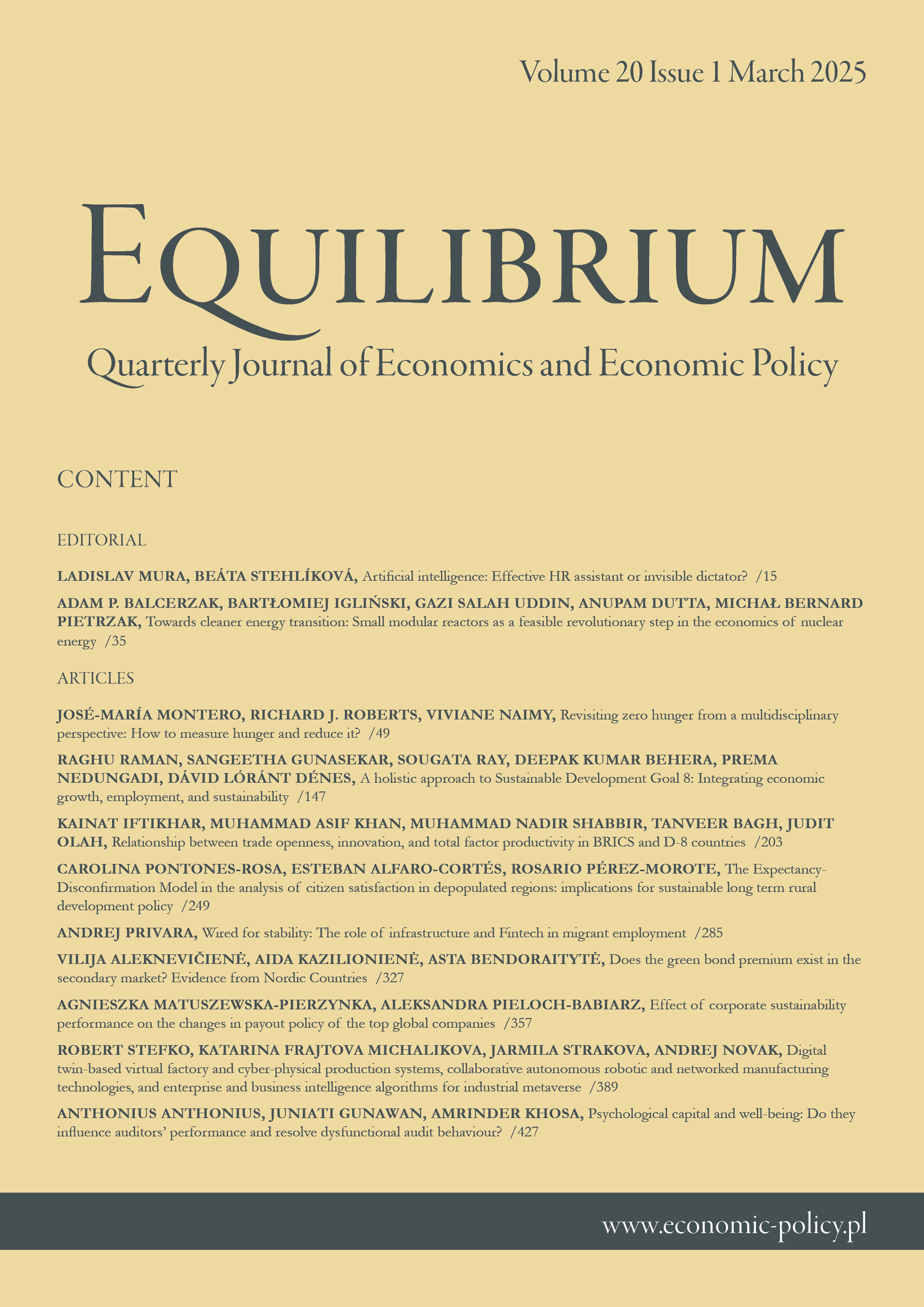Psychological capital and well-being: Do they influence
auditors’ performance and resolve dysfunctional audit behaviour?
Psychological capital and well-being: Do they influence
auditors’ performance and resolve dysfunctional audit behaviour?
Author(s): Anthonius Anthonius, Juniati Gunawan, Amrinder KhosaSubject(s): Business Economy / Management, Psychology of Self, Socio-Economic Research
Published by: Instytut Badań Gospodarczych
Keywords: psychological capital; auditors’ performance; dysfunctional audit behaviour; psychological well being;
Summary/Abstract: Research background: The role of auditors has gained increased attention due to corporate fraud and misconduct incidents, shaking public trust in financial reporting. Dysfunctional audit behaviour is a global concern, with instances noted across various regions, including Asia. This context sets the stage for examining the influence of auditors' psychological attrib- utes on their professional conduct.Purpose of the article: The study examines the influence of psychological capital and well- being on auditors' performance and their ability to tackle dysfunctional audit behaviour, applying theories like performance and behavioural accounting to understand these dynam- ics. Methods: The study gathers primary data from auditors in Indonesian non-Big Four firms. It tests four hypotheses using Partial Least Squares Structural Equation Modeling (PLS-SEM), focusing on the link between psychological factors, auditor performance, and dysfunctional audit behaviour. Findings & value added: The findings indicate that psychological factors — specifically psy- chological capital and well-being—indirectly affect dysfunctional audit behaviour via audi- tors' performance. This emphasizes the critical role of auditors' psychological health and work-life balance in maintaining performance and ethical standards. The research suggests implementing psychological assessments during recruitment and enhancing training pro- grams to improve auditors' well-being and performance. This study not only offers strategies for mitigating dysfunctional behaviour in non-Big Four firms, but also contributes to the broader field of accounting behavioural studies, especially in developing countries. It lays groundwork for future research aimed at improving audit practices and ethical financial reporting worldwide.
Journal: Equilibrium. Quarterly Journal of Economics and Economic Policy
- Issue Year: 20/2025
- Issue No: 1
- Page Range: 427-462
- Page Count: 36
- Language: English

